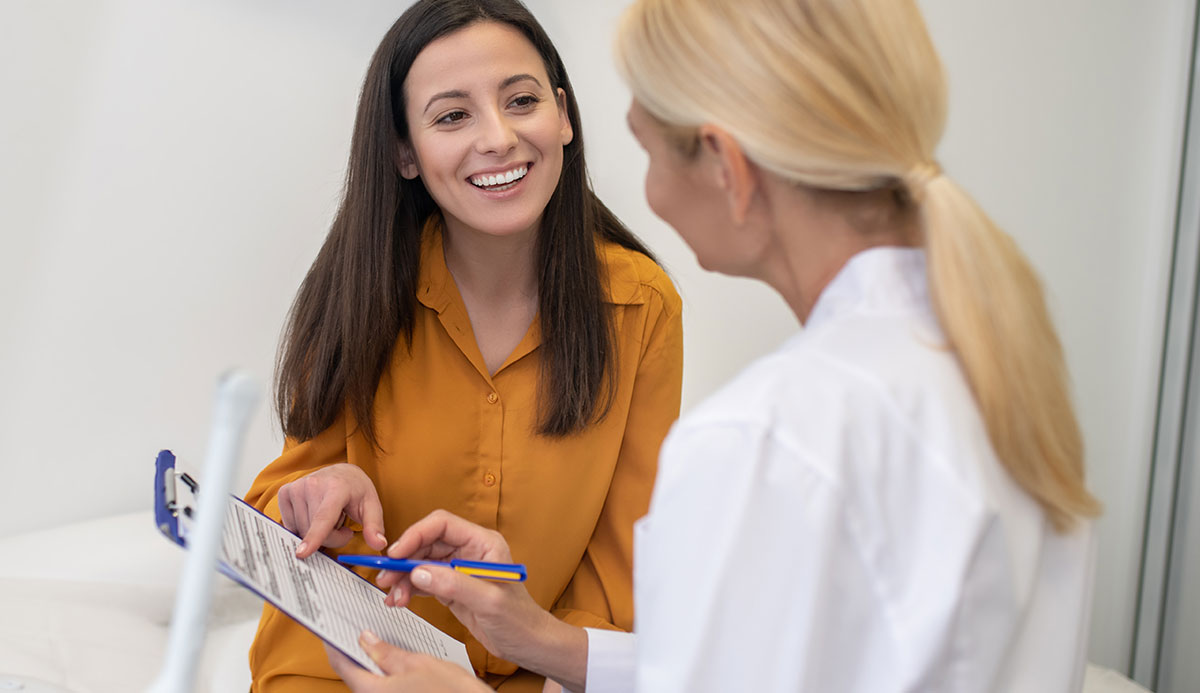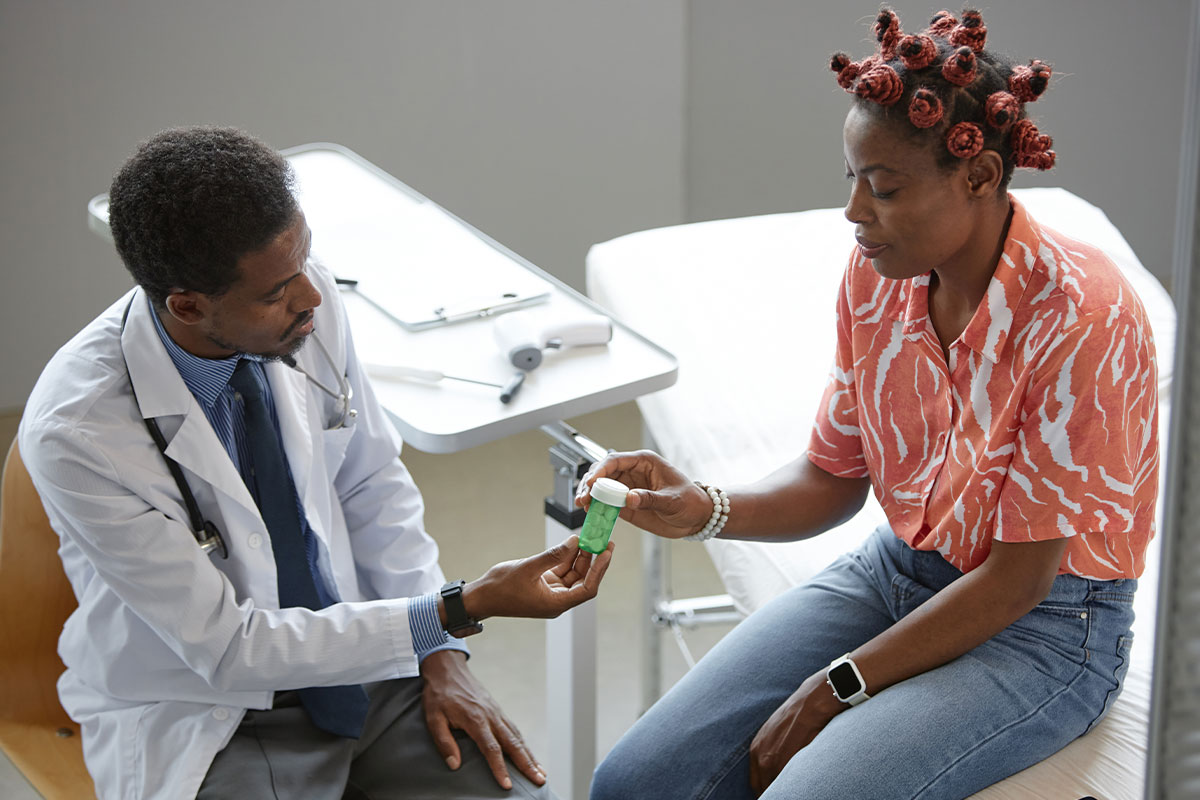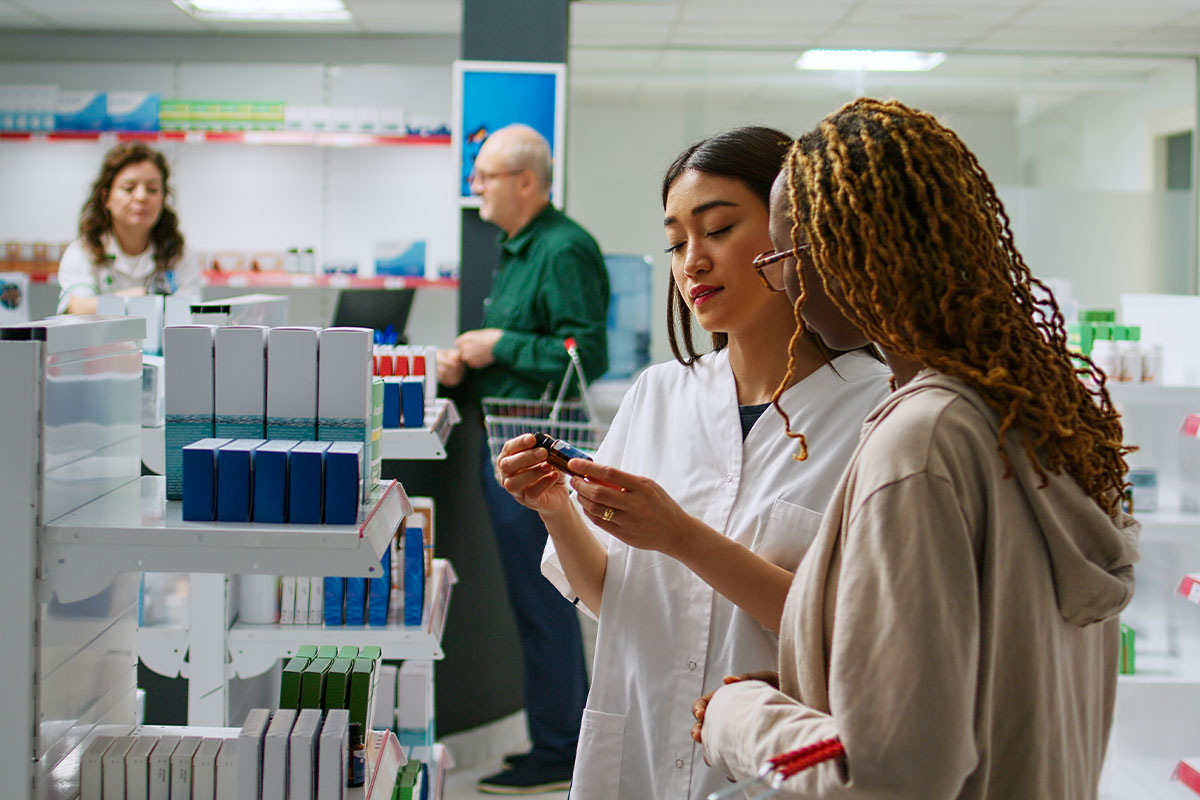Know More About HIV
HIV testing can give you some important lifesaving information and can help keep you—and others—safe.
HIV is spread through unprotected sex and drug-injecting behaviors, so people who engage in these behaviors should get tested more often. Knowing your risk can help you make important decisions to prevent exposure to HIV. The CDC has developed the HIV Risk Reduction Tool to help you know risk and for better understanding of how different prevention methods like using condoms or taking PrEP, can reduce your risk. Overall, an American has a 1 in 99 chance of being diagnosed with HIV at some point in his or her lifetime. However, the lifetime risk is much greater among some populations.
Our HIV Services
HIV Testing
Early detection is crucial. We offer free and confidential HIV rapid testing with results in 15-20 minutes. A simple finger prick is used to collect a small blood sample for antibody detection. If antibodies are found, we’ll follow up with a confirmatory oral swab test.

HIV Management
Living with HIV requires ongoing care. Our certified counselors provide safe and confidential testing, along with education and support for HIV prevention and care.
HIV Treatment
Modern treatments can suppress the virus to undetectable levels, allowing you to lead a healthy, active life. If your rapid test is reactive (positive), we’re here to guide you to the resources you need.
HIV Prevention (PrEP)
If you’re HIV-negative but at risk, Pre-Exposure Prophylaxis (PrEP) can reduce the risk of infection. Our team can provide more information and help you determine if PrEP is right for you.
Common Questions About HIV
Must I use condoms to prevent transmission when HIV is treatable?
Although HIV is treatable, experts still advise using condoms during sexual intercourse to prevent HIV. Once a person is HIV positive, transferring the virus to a person can be prevented by making sure you have an undetectable viral status, which can be difficult without the guidance of a health care provider.
Are there risks of getting HIV if you put on a condom after you’ve already started having sex?
Delayed condom use is associated with an increased risk of HIV transmission in both heterosexual and homosexual couples. Many studies have attributed delayed condom use during sex to be riskier than when a condom is put on before sexual intercourse. Studies have also shown that delaying condom use during intercourse carries an increased risk of transmission compared to unprotected sex in women and the same risk of transmission as unprotected sex in men who have sex with other men.
Can HIV be transmitted through oral sex?
Oral sex, although not without its share of risk, is relatively safer when it comes to HIV transmission. This is because the risk of HIV transmission through oral sex is lower than the risk carried by vaginal and anal sex combined. However, some particular circumstances increase your chances of acquiring HIV through oral sex. It is also important to note that you could get other STDs through oral sex, aside from HIV.
Can HIV-positive person have unprotected sex with another HIV-positive person?
When both partners in a sexual relationship are HIV-positive, they are called HIV seroconcordant sex partners. Having anal or vaginal intercourse with an HIV-infected person when you’re HIV-positive yourself is a good strategy to lower HIV transmission. However, seroconcordant sex partners are still at risk of acquiring other STDs through unprotected sex. Moreover, there is always a strong possibility of reinfection or superinfection in such partners.
Is it possible to reduce the risk of getting HIV after having unprotected sex with someone who has HIV?
Yes. Reducing the risk of developing an HIV infection after getting exposed to it is possible. There is a special emergency medical regime designed for it, known as nPEP. nPEP stands for nonoccupational Post-Exposure Prophylaxis. It includes a series of pills to be taken within 72 hours of possible exposure to HIV.
Should you get tested?
If you answer yes to any of the the questions below, then it’s time to get tested to keep both you and others safe.
- RAre you uncertain your HIV status?
- RHave you had unprotected sex within the last 12 months?
- RHave you had oral sex but you have not been tested?
- RHave you been diagnosed with or treated for another sexually transmitted disease?
- RHave you been diagnosed with or treated for hepatitis or tuberculosis (TB)?
- RHave you been having swollen lymph nodes, achy muscles and joint pain?
Your health and well-being are our top priorities. The CDC recommends everyone between the ages of 13 & 64 get HIV testing at least once.
Ready to Start?
We’re here to provide compassionate, comprehensive care tailored to your needs. Reach out to us today at (386) 279-7002 to learn more about our services or to schedule an appointment.
You’ve got more questions…
Let Us Help
Remember, your health is your power—and we’re here to help you protect it. Visit us today and take the first step toward a healthier, brighter future.